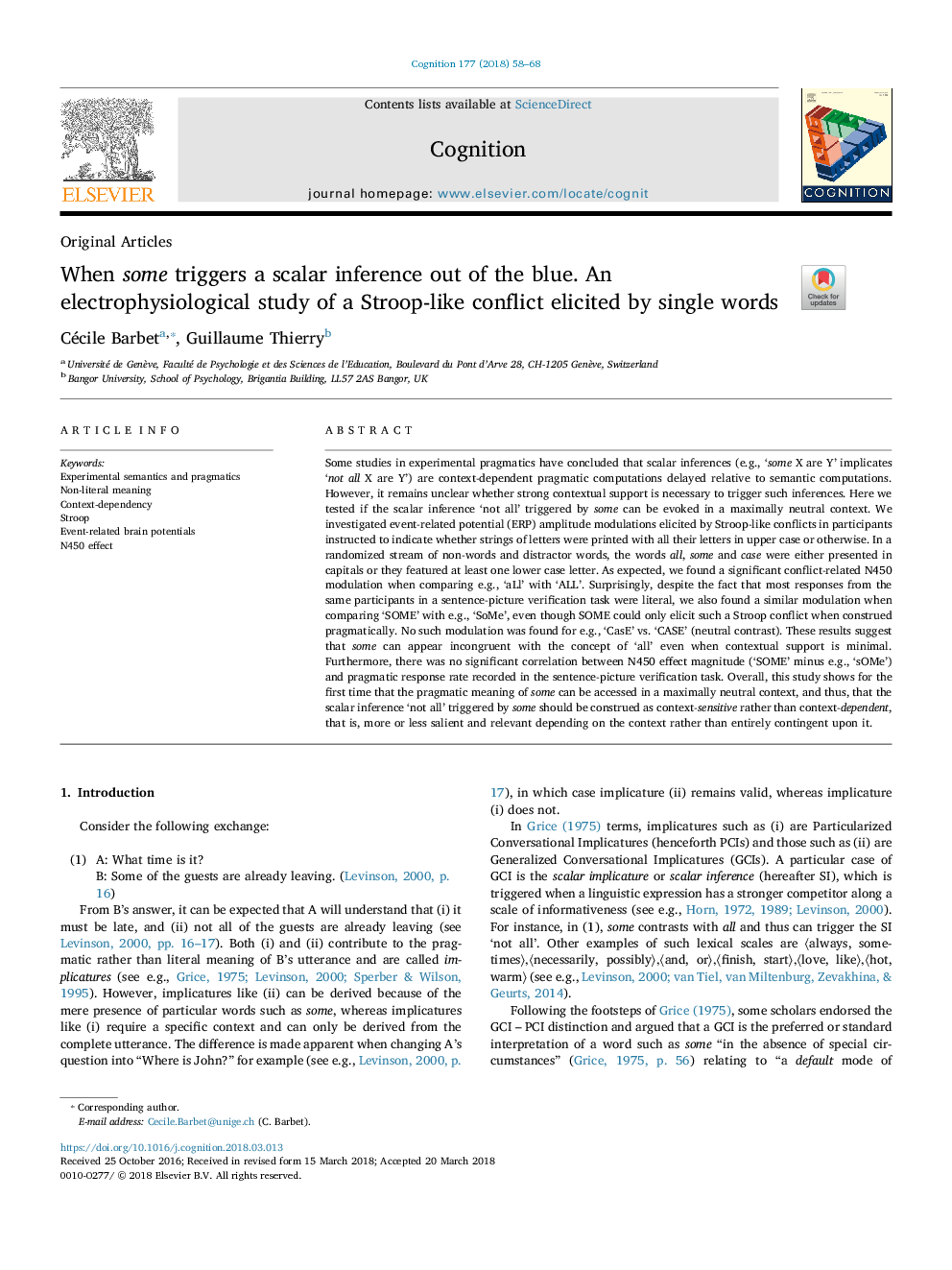ترجمه فارسی عنوان مقاله
هنگامی که بعضی از نتیجه گیری های اسکالر را از آبی انجام می دهند. یک مطالعه الکتروفیزیولوژیک یک درگیری استروپ مانند یک کلمه است
عنوان انگلیسی
When some triggers a scalar inference out of the blue. An electrophysiological study of a Stroop-like conflict elicited by single words
| کد مقاله | سال انتشار | تعداد صفحات مقاله انگلیسی |
|---|---|---|
| 118875 | 2018 | 11 صفحه PDF |
منبع

Publisher : Elsevier - Science Direct (الزویر - ساینس دایرکت)
Journal : Cognition, Volume 177, August 2018, Pages 58-68

